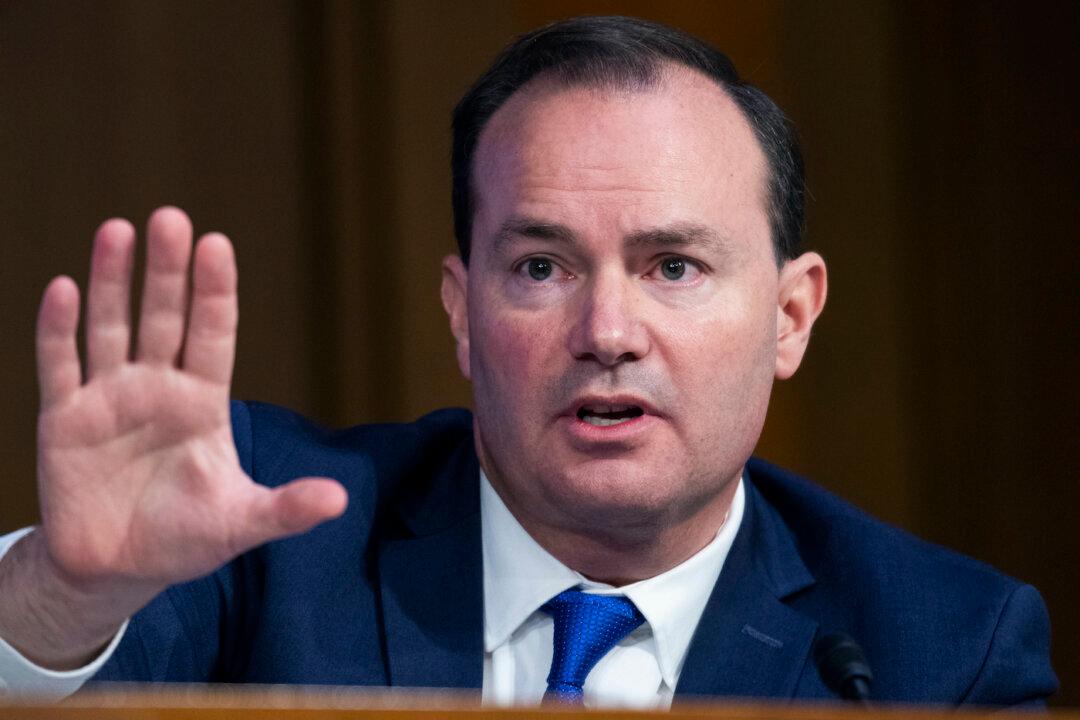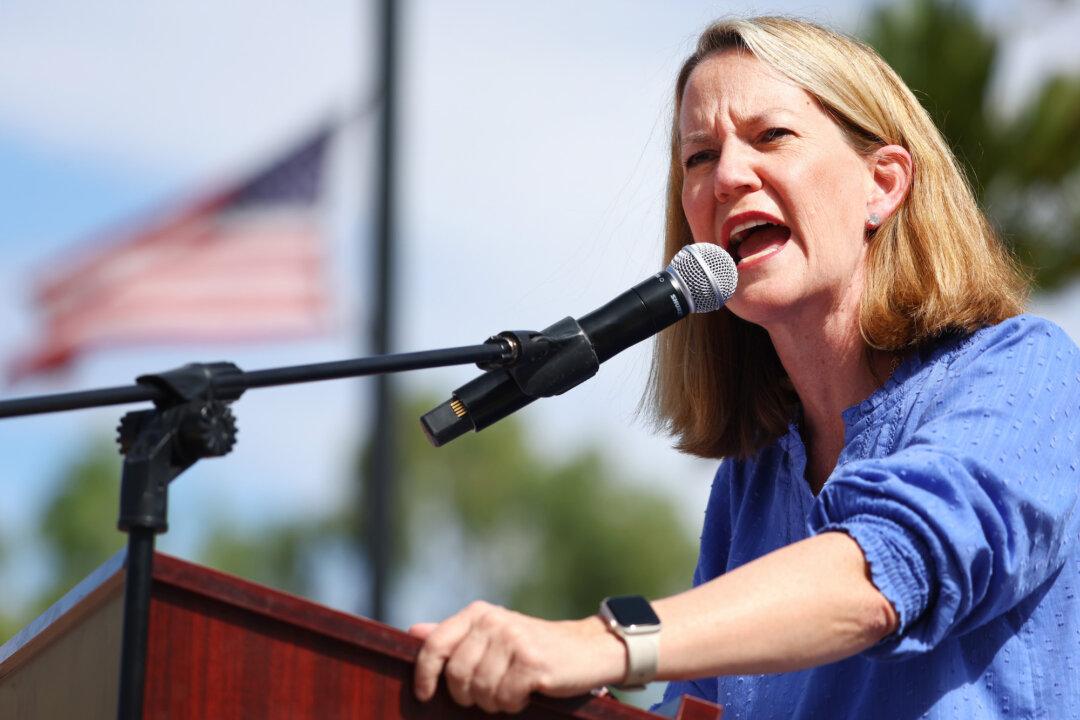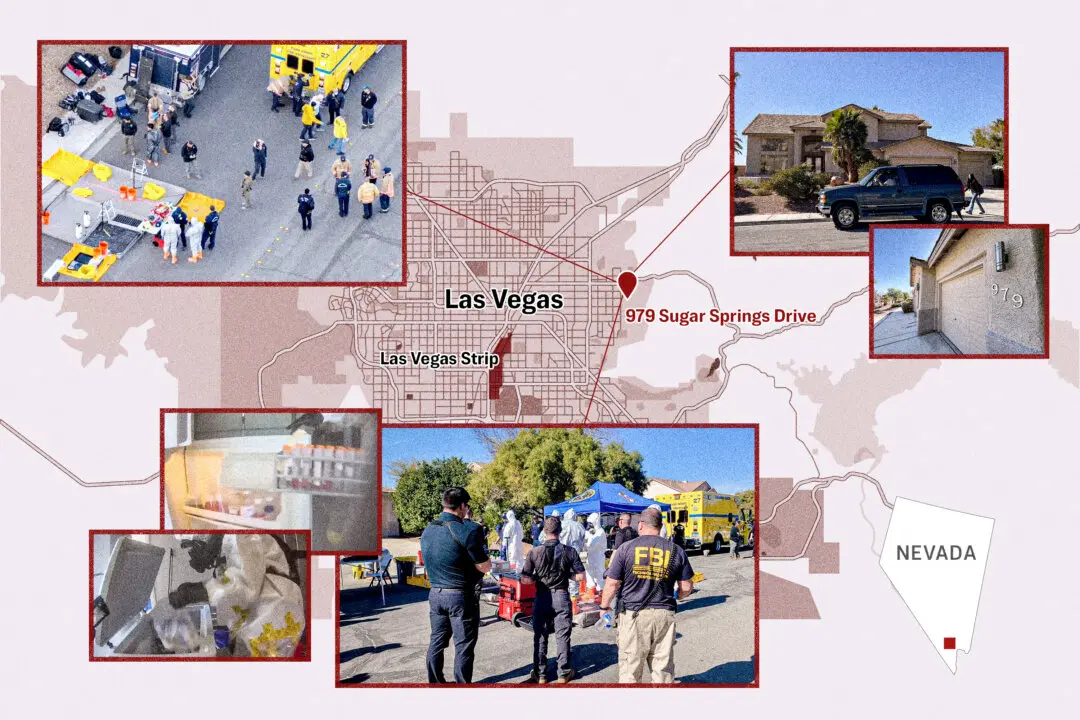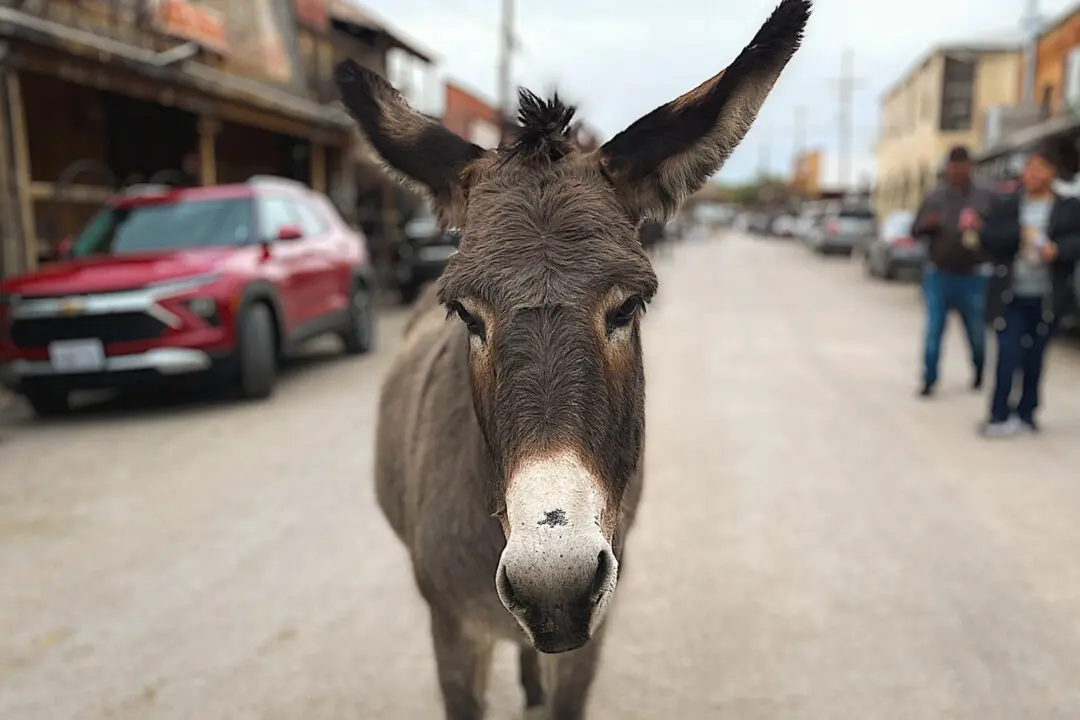SALT LAKE CITY, Utah—U.S. Congressional Republicans fended off electoral challenges in Utah’s June 28 primary, with U.S. Sen. Mike Lee (R) sweeping the floor with his closest rival Becky Edwards.
With roughly 78 percent of the votes counted, Lee has captured over 60 percent of the vote and Edwards 31 percent. Ally Isom (R) received just over 8 percent, according to Decision Desk HQ.





